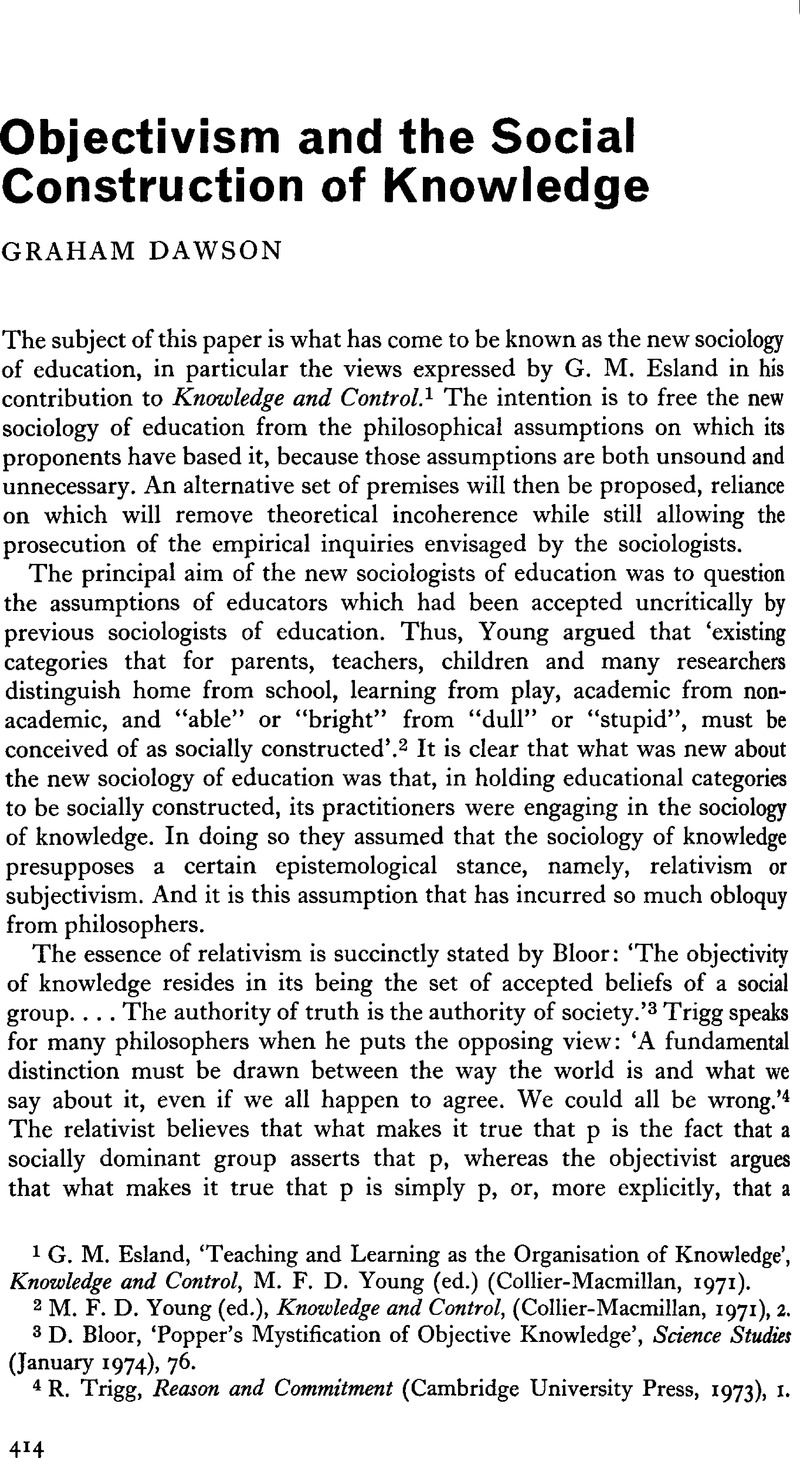Published online by Cambridge University Press: 30 January 2009

1 Esland, G. M., ‘Teaching and Learning as the Organisation of Knowledge’, Knowledge and Control, Young, M. F. D. (ed.) (Collier-Macmillan, 1971)Google Scholar.
2 Young, M. F. D. (ed.), Knowledge and Control, (Collier-Macmillan, 1971), 2Google Scholar.
3 Bloor, D., ‘Popper's Mystification of Objective Knowledge’, Science Studies (01 1974), 76Google Scholar.
4 Trigg, R., Reason and Commitment (Cambridge University Press, 1973), 1Google Scholar.
5 Op. cit. note 1, 77.
6 Flew, A. G. N., ‘Sociologists as Surrogates for Berkeley's God’, Open Mind (07 1977), 11Google Scholar.
8 Ibid..
8 Op. cit. note 1, 75.
9 Ibid..
10 Frege, G., ‘The Thought: A Logical Inquiry’, Philosophical Logic, Strawson, P. F. (ed.) (Oxford University Press, 1967)Google Scholar.
11 Searle, J. R., ‘Assertions and Aberrations’, British Analytical Philosophy, Williams, B. A. O. and Montefiore, A. C. (eds) (Routledge and Kegan Paul, 1966),53Google Scholar.
12 Op. cit. note 10, 17.
13 Pring, R., ‘Knowledge Out of Control’, Education for Teaching (Autumn 1972), 25Google Scholar.
14 See Searle, J. R., Speech Acts: An Essay in the Philosophy of Language (Cambridge University Press, 1969), 51CrossRefGoogle Scholar.
15 N. Keddie, ‘Classroom Knowledge’, op. cit. note 2, 156.
16 Flew, A. G. N., ‘Metaphysical Idealism and the Sociology of Knowledge’, Sociology, Equality and Education (Macmillan, 1976), 17CrossRefGoogle Scholar.
17 Mackie, J. L., Ethics: Inventing Right and Wrong (Penguin, 1977), 26Google Scholar.
18 See Austin, J. L., How To Do Things With Words (Oxford University Press, 1962)Google Scholar.
19 Ibid.
20 Op. cit. note 1, 85–86.
21 Ibid.
22 Dawson, G., ‘Keeping Knowledge Under Control’, Journal of Further and Higher Education 1, No. 3 (Winter 1977), 90CrossRefGoogle Scholar.